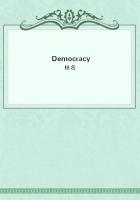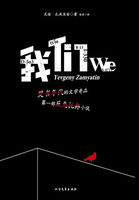"Say and the economists after him have observed that labor being itself subject to valuation, being a commodity like any other commodity, it is moving in a vicious circle to treat it as the principle and the determining cause of value. In so doing, these economists, if they will allow me to say so, show a prodigious carelessness. Labor is said to have value not as a commodity itself, but in view of the values which it is supposed potentially to contain. The value of labor is a figurative expression, an anticipation of the cause for the effect. It is a fiction of the same stamp as the productivity of capital. Labor produces, capital has value....
By a sort of ellipsis one speaks of the value of labor....
Labor like liberty... is a thing vague and indeterminate by nature, but defined qualitatively by its object, that is to say, it becomes a reality by the product."[I 61]
"But is there any need to dwell on this? The moment the economist (read M. Proudhon) changes the name of things, vera rerum vocabula [the true name of things], he is implicitly confessing his impotence and proclaiming himself not privy to the cause."(Proudhon, I, 188)
We have seen that M. Proudhon makes the value of labor the "determining cause" of the value of products to such an extent that for him wages, the official name for the "value of labor", form the integral price of all things: that is why Say's objection troubles hiM. In labor as a commodity, which is a grim reality, he sees nothing but a grammatical ellipsis. Thus the whole of existing society, founded on labor as a commodity, is henceforth founded on a poetic licence, a figurative expression. If society wants to "eliminate all the drawbacks" that assail it, well, let it eliminate all the ill-sounding terms, change the language; and to this end it has only to apply to the Academy for a new edition of its dictionary. After all that we have just seen, it is easy for us to understand why M. Proudhon, in a work on political economy, has to enter upon long dissertations on etymology and other parts of grammar. Thus he is still learnedly discussing the antiquated derivation of servus from servare . These philological dissertations have a deep meaning, an esoteric meaning -- they form an essential part of M. Proudhon's argument.
Labor [4] , inasmuch as it is bought and sold, is a commodity like any other commodity, and has, in consequence, an exchange value. But the value of labor, or labor as a commodity, produces as little as the value of wheat, or wheat as a commodity, serves as food.
Labor "is worth" more or less, according to whether food commodities are more or less dear, whether the supply and demand of hands exist to such or such a degree, etc., etc.
Labor is not a "vague thing"; it is always some definite labor, it is never labor in general that is bought and sold. It is not only labor that is qualitatively defined by the object; but also the object which is determined by the specific quality of labor.
Labor, in so far as it is bought and sold, is itself a commodity.
Why is it bought? "Because of the values it is supposed potentially to contain." But if a certain thing is said to be a commodity, there is no longer any question as to the reason why it is bought, that is, as to the utility to be derived from it, the application to be made of it. It is a commodity as an object of traffic. All M. Proudhon's arguments are limited to this: labor is not bought as an immediate object of consumption. No, it is bought as an instrument of production, as a machine would be bought.
As a commodity, labor has no value and does not produce. M. Proudhon might just as well have said that there is no such thing as a commodity, since every commodity is obtained merely for some utilitarian purpose, and never as a commodity in itself.
In measuring the value of commodities by labor, M. Proudhon vaguely glimpses the impossibility of excluding labor from this same measure, in so far as labor has a value, as labor is a commodity. He has a misgiving that it is turning the wage minimum into the natural and normal price of immediate labor, that is is accepting the existing state of society. So, to get away from this fatal consequence, he faces about and asserts that labor is not a commodity, that it cannot have value. He forgets that he himself has taken the value of labor as a measure, he forgets that his whole system rests on labor as a commodity, on labor which is bartered, bought, sold, exchanged for produce, etc., on labor, in fact, which is an immediate source of income for the worker. He forgets everything.
To save his system, he consents to sacrifice its basis.
Et propter vitam vivendi perdere causas!
We now come to a new definition of "constituted value".
"Value is the proportional relation of the products which constitute wealth."Let us note in the first place that the single phrase "relative or exchange value" implies the idea of some relation in which products are exchanged reciprocally. By giving the name "proportional relation" to this relation, no change is made in the relative value, except in the expression. Neither the depreciation nor the enhancement of the value of a product destroys its quality of being in some "proportional relation" with the other products which constitute wealth.
Why then this new term, which introduces no new idea?
"Proportional relation" suggests many other economic relations, such as proportionality in production, the true proportion between supply and demand, etc., and M. Proudhon is thinking of all that when he formulates this didactic paraphrase of marketable value.
In the first place, the relative value of products being determined by the comparative amount of labor used in the production of each of them, proportional relations, applied to this special case, stand for the respective quota of products which can be manufactured in a given time, and which in consequence are given in exchange for one another.
Let us see what advantage M. Proudhon draws from this proportional relation.















